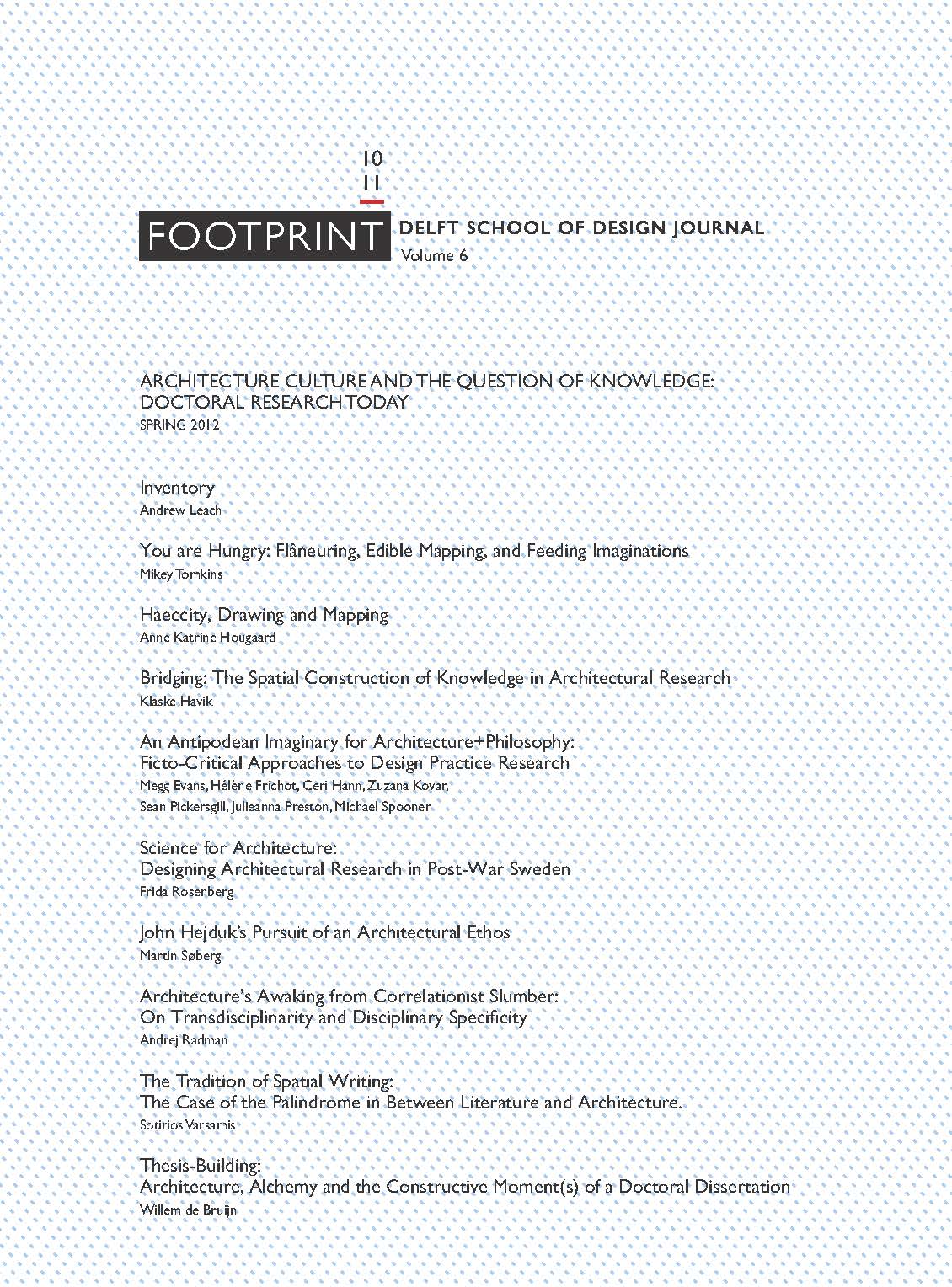Architecture’s Awaking from Correlationist Slumber: On Transdisciplinarity and Disciplinary Specificity
DOI:
https://doi.org/10.7480/footprint.6.1-2.754Abstract
Perception cannot be considered independently of the environment since it is defined as an evolved adaptive and constructive relation between the life-form and its milieu. Unfortunately, experimental psychology research has relied overwhelmingly on object perception, rather than environment perception, with the findings of the former providing the basis for understanding the latter.
Architectural research continues to suffer from this fallacy. Furthermore, to separate the ‘cultural’ from the ‘natural’ environment – as if there were a world of mental and a world of material products – is a fatal mistake. There is only one world. The paper explores J.J. Gibson’s unwitting affiliation with Deleuze. The most notable point of convergence between the two thinkers is their more or less overt theory of ‘passive synthesis’ of perception with which they vehemently oppose, or better yet complement, the active synthesis of representation.
Downloads
Published
Issue
Section
License
- Authors retain copyright and grant the journal right of first publication with the work simultaneously licensed under a Creative Commons Attribution License that allows others to share the work with an acknowledgement of the work's authorship and initial publication in this journal.
- Authors are able to enter into separate, additional contractual arrangements for the non-exclusive distribution of the journal's published version of the work (e.g., post it to an institutional repository or publish it in a book), with an acknowledgement of its initial publication in this journal.





